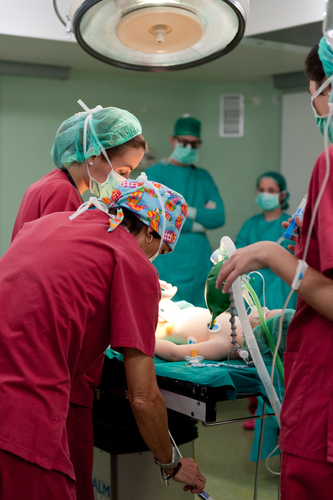 The call came one weekend in the late afternoon. A neurosurgeon needed my help to manage a heart-breaking case of a little boy terribly injured in an accident. We needed to determine whether he was still alive, and could be life-flighted to Portland, or whether it was too late for further medical interventions.
The call came one weekend in the late afternoon. A neurosurgeon needed my help to manage a heart-breaking case of a little boy terribly injured in an accident. We needed to determine whether he was still alive, and could be life-flighted to Portland, or whether it was too late for further medical interventions.
As I raced into the intensive care waiting area, I introduced myself to his family, who was frantic, and explained the next step: A brain blood-flow scan to see if he was still circulating blood to his brain. His parents were not allowed to go into the radiology suite with him. I told them I was a mom and a pediatrician, and that I would be with him every moment.
I still remember the feeling of that little chubby hand suddenly going cold in mine as we were rolling down the hallway toward the scanner. I knew at that moment he had left us. The scan confirmed the tragic news, and I returned with my heart in my throat to talk to the crowd of friends and family in the waiting room.
What happened next was one of the most amazing evenings of my life as a physician. In general, when a child passes away, my role is to explain what happened to the family, answer their questions and give them space to grieve. These conversations are always horrible but usually quite brief. There are few words to say and few questions that matter in that moment. The family usually circles around each other to cry, and I go home to my own family to weep.
But this case was different. The mother sat with me for a long time, talking about her only child now departed, to reflect on the meaning of his life, to share our thoughts about what happens after a child dies, and to ask me about my kids.
Then she asked me, “If he were your baby, would you donate his organs?” The ensuing conversation with his parents was a powerful moment in my life as a physician, a mother and a Christian.
Ultimately, this little boy’s parents made the decision to donate their son’s tissues and organs, which went to seven people. His heart saved the life of a young mother. His eyes gave vision to a man who had not seen for decades. Seven others were saved, too, by this incredible gift. The unthinkable tragedy of this child’s lost life yielded new life and new hope for so many.
Recently, I was reminded of his family’s profound choice when one of my toddler patients received a kidney transplant. His kidney came from a young man who died in an accident. Now, it’s as if, for my little friend, “ a dark cloud was lifted from him,” his parents say. After years on dialysis, laying in intensive care units desperately sick, developmentally stunted by his ailing kidneys, he is talking and laughing and learning. Nothing short of a miracle has happened for this little boy.
Every day, I give thanks for healthy kids. For surgeons with the skill and experience to perform incredible transplant surgeries. For families with the courage and compassion to make impossibly hard decisions during a tragedy. For the opportunity to be with families when they need help. And for little lives changed by the gift of new life when they needed it most.
Consider becoming an organ donor. Learn more. Ask me.
